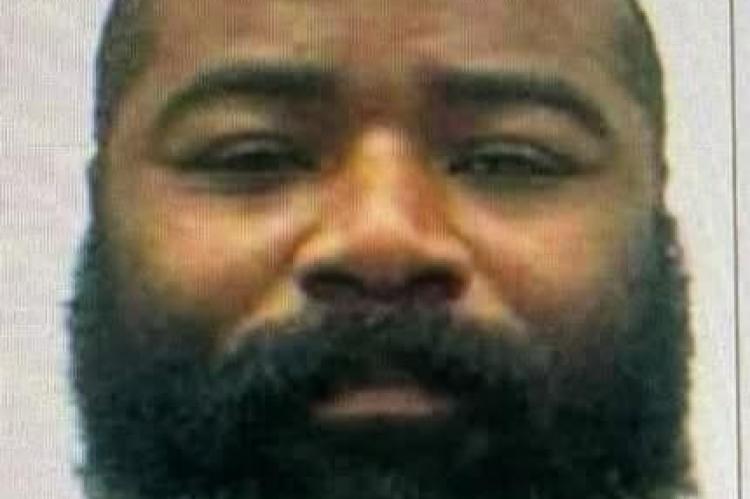The Last Chapter of the Mire: Was Akinyela Taylor’s Final Journey Foretold?
By: Omar Silva I Editor/Publisher
National Perspective Belize – Digital 2025
Belize City Friday 18th April 2025
THE LAST CHAPTER: "Journey Through The Mire"
"Sometimes the calling is not to survive the journey, but to reveal its cost."
The nation is still reeling from the Holy Thursday hijacking—a rare and terrifying ordeal in Belizean airspace that ended with three wounded passengers and the death of the perpetrator, 49-year-old American national Akinyela Sawa Taylor.
Much has been written about the incident. The facts are chilling. Taylor, armed with a knife, forced a Tropic Air pilot to reroute the small Cessna aircraft as it circled dangerously close to depletion over Belizean skies. The terrifying event ended when a brave passenger subdued and fatally shot Taylor, but not before the hijacker had stabbed three individuals—including the pilot and a Tropic Air manager.
But behind the headlines lies a deeper, more elusive story—one less rooted in sensationalism and more in the haunting contradictions of the man himself. Who was Akinyela Taylor, beyond the hijacker? And did the title of his self-published spiritual memoir, "Journey Through The Mire: The Calling", somehow foreshadow his own tragic descent into darkness?
A Book of Redemption—or a Warning?
Published on Amazon, Taylor’s book promised a redemptive tale of transformation. The blurb paints the image of a man rising from despair and navigating his way through spiritual trials toward hope and purpose. It speaks of a soul once lost, now found; a narrative arc so familiar in stories of personal evolution, especially those grounded in faith or healing.
Yet, in hindsight, the book’s title is chilling. “Journey Through the Mire” now reads like a metaphor for a man still sinking in unresolved pain. “The Calling” suggests a sense of destiny, even purpose—but what kind of calling ends in a hijacking, injury, and death?
If this book was a roadmap of his spiritual evolution, then the events of Holy Thursday point tragically to a life still caught in the mud of his own turmoil. The mire may not have released him after all.
From Coach and Author… to Desperate Fugitive
Taylor’s life, as loosely pieced together from online records, paints a picture of someone who had been many things: a former school football coach up to 2019, a U.S. military veteran, a writer, and perhaps, at times, a wanderer in search of answers. But what demons pursued him to Belize?
Denied legal entry at the northern border, and reportedly turned away at the airport days before the hijacking, Taylor nonetheless entered Belize through back channels—a metaphor, perhaps, for the spiritual backdoor he had taken from his own moral compass.
He reportedly created disturbances in the Free Zone and was seen around Corozal and Belize City in the days leading up to the hijacking, doing laundry, inquiring about transportation, even seeking a way to leave the country. What was he fleeing from? Or toward?
He demanded the plane take him out of Belize. Out of this place, perhaps—but also, maybe, out of his own unraveling mind. Did he see himself as a man on a divine or desperate mission? Was the knife his cross? Was the plane his last confession?
A Veteran's Mental Struggle?
There are suggestions that Taylor was a U.S. veteran—a detail that cannot go unmentioned in a story such as this. Many veterans return home carrying invisible wounds—Post-Traumatic Stress Disorder, depression, social alienation. The system often fails them. Society too easily forgets them.
It’s possible that Taylor's final days were driven by an untreated or escalating mental health crisis. The erratic behavior, the urgency to leave Belize, the act of commandeering a plane—these may have been the final outburst of a man who was not evil, but broken.
If his spiritual journey was one of healing, then the hijacking might represent the collapse of that path, or a final, frantic plea for salvation. Perhaps it was not a journey through the mire, but a drowning in it.
A Tragic Wake-Up Call for Belize
The tragedy has shaken the collective psyche of Belize. For a peaceful nation, the hijacking feels like an imported trauma—one that challenges our sense of safety, our border integrity, and our preparedness for such extraordinary threats. But it also forces us to look at the humanity behind the horror.
Yes, Akinyela Taylor committed an unforgivable act. He endangered lives and brought terror to our skies. But he was also a man—at one point a teacher, a writer, a veteran, a seeker. His book stands today as a fragment of who he wanted to be, not who he became.
In the end, Belize was not merely the setting of his last act—it became the stage for the final chapter of a troubled soul’s unfinished story.
Epilogue: The Calling That Echoes
Whether Taylor’s book was a prophecy, a cry for help, or a premature obituary remains unclear. What is certain is that this ordeal was more than a crime—it was a confluence of spiritual collapse, mental health crisis, border insecurity, and tragedy.
The final line of "Journey Through The Mire" reads:
"Sometimes the calling is not to survive the journey, but to reveal its cost."
Was that his truth?
And if so… have we, in Belize, fully understood the cost?
- Log in to post comments

